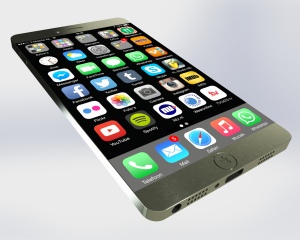Apple announced its first drop in profits in the past ten years last week. This development was not exactly foreseen, with reports that the iPhone 5S and its successor have experienced multiple delays. Although this news will undoubtedly be seen as a blow for such a successful company – there have been rumours that CEO Tim Cook’s days may be numbered – it is unlikely that the news will give all but the strongest competitors cause for celebration.
Although Apple’s profits are expected to experience a dip, the company is poised to announce record sales levels across all of its products. The iPhone and iPad continue to go from strength to strength, shifting an estimated 35 million and 17 million units respectively this quarter. These impressive sales figures place Apple ahead of most competitors in the smartphone and mobile market, so why the profit gap? It’s likely due to the much tighter profit margins on more up-to-date devices, as well as a comparatively weak dollar, neither of which are insurmountable issues. As Apple brings down the cost on the production of products such as the iPad Mini, and as the economy lurches back into life in the west, we may well see a jump up in Apple’s profits in the next quarter. As far as competitors go, this isn’t necessarily a glitteringly positive situation. Take Samsung, for instance: The South Korean technology giant is Apple’s biggest rival in the smartphone market (and regularly beats the company on sales). Samsung are also set to experience a slight fall in their operating profits from last quarter, although their profits are set to be a good deal higher than last year’s Q1 figures. However, this shouldn’t be taken as a general trend, and we must remember that Apple and Samsung operate in different countries and on fairly different business models.
Lest we forget, Apple is also a company that makes computers. Apple’s sales figures have been slightly buoyed by the latest version of the iMac, which has been selling relatively well. Sales of the MacBook Air continue to radically outstrip ultrabook sales, although this is almost certainly a point of successful branding rather than radical differences in equipment performance. In fact, other manufacturers like Lenovo or Samsung are releasing new and improved tablets and ultrabooks that may have an influence on the market and on Apple’s sales figures. While this news certainly isn’t particularly good news for Apple’s share price (which has been dropping steadily recently), the causes behind the slump are likely to have affected the competition in equal measure. Since the market equilibrium hasn’t really changed, we’ll be unlikely to see a major revolution or power grab by adjacent companies. While the Apple CEO may end up having to make a very convincing argument to shareholders if he wants to keep his job, the company will continue to thrive in the long term once these blips have been resolved. The same is probably true for its nearest competitors.







